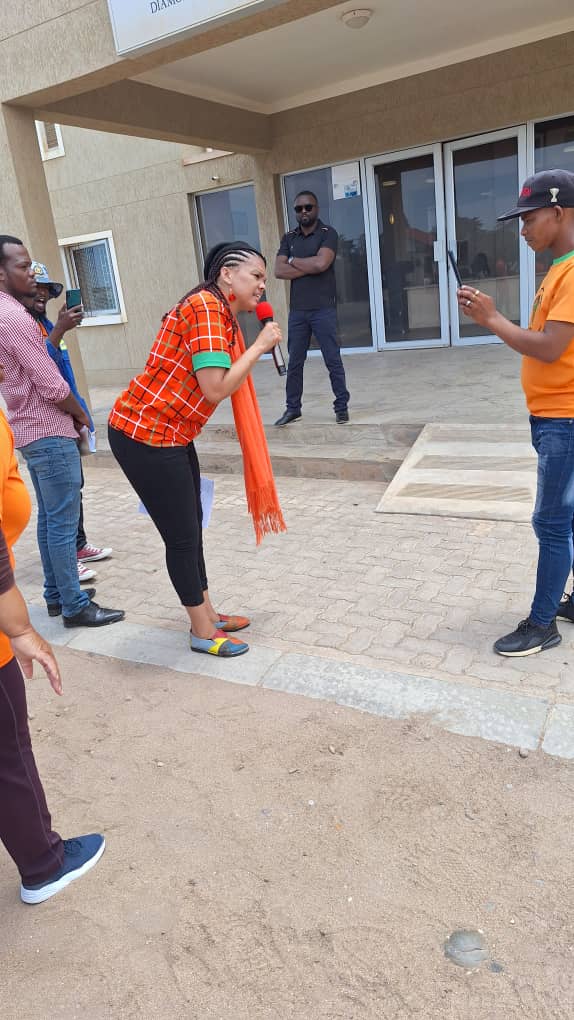Kuzeeko Tjitemisa
The land question, Neckartal Dam, genocide and challenges faced by local authorities were some of the issues on the agenda during talks between President Hage Geingob and a high-level delegation from the Landless People’s Movement led by its leader Bernadus Swartbooi yesterday.
Addressing journalists shortly after the meeting, Swartbooi, who visited State House for the first time since his resignation as deputy land reform minister in 2016, described the closed-door meeting with Geingob as having been “fruitful”.
“Our discussions were very fruitful. We touched on the question of genocide, we touched on the question of land, we touched on the question of closing ranks, setting politics aside and doing things together in terms of bringing services and welfare to all of our citizens,” he said about the meeting, which lasted for an hour.
Swartbooi added that the meeting also discussed the Neckartal Dam in the //Kharas region, which is Namibia’s biggest dam.
“We said we must do something urgently. We say it cannot just be a PPP-driven project, nor can it be an exclusively government-driven project. It has to be both PPP and an upright private sector-driven project. It must include the regional council, which is the principal governing that region, and the President agreed with us,” Swartbooi continued.
Water affairs minister Calle Schlettwein recently said Cabinet would consider a public-private partnership proposal for the development of a 5 000-hectare irrigation scheme outside the Neckartal Dam.
Last year, government announced that the envisaged irrigation scheme would produce a valley of green lush lands, where high-value crops like wheat, maize, vegetables and fruits as well as animal fodder could be produced for consumption and export to other markets.
According to Swartbooi, Geingob said there were local investors ready to invest in the irrigation project.
“We proposed to the President that we must look at the land to be shared, and that will still be discussed,” he added.
Swartbooi said they also asked Geingob to consider leading a genocide conference for the affected communities to map a way forward.
The opposition leader informed that he has submitted a 20-page document to the Head of State to address issues that are important to them and government.
In a document titled ‘Building a Capable State Post Covid-19’, seen by New Era, Swartbooi wants government to take ‘bold decisions’ to rescue the most vulnerable from starvation, disease, loss of income and potential deaths caused by the Covid-19 pandemic.
“Black businesses are bearing the brunt of economic meltdown, as institutions such as the Development Bank of Namibia (DBN) are relinquishing any and all developmental outlooks as per their mandate and enforcing stringent loan repayment models. Granted, the DBN and Agribank have to obtain what is due to them by the borrowers. But what is the national mandate of these bodies?” the document asks.
Furthermore, the document states that the matter requires the Presidency to urgently intervene to ensure a balanced approach so that entrepreneurs are not decapitated, and that the economy does not suffer beyond recovery capabilities.
“The economy should not collapse. A collapse of Namibia’s economy is real, and if it occurs, we stand the risk of confronting greater and unprecedented socio-economic and political upheaval and instability since the advent of colonialism in Namibia,” it further reads.
Swartbooi was accompanied by his deputy Henny Seibeb, LPM treasurer general Eina Hanganeni, //Kharas chairperson Josef Isak and Hardap Regional Council chairperson Gerson Dausab.
Geingob was joined in the meeting by Vice President Nangolo Mbumba and minister in the presidency Christine //Hoebes.
– ktjitemisa@nepc.com.na



